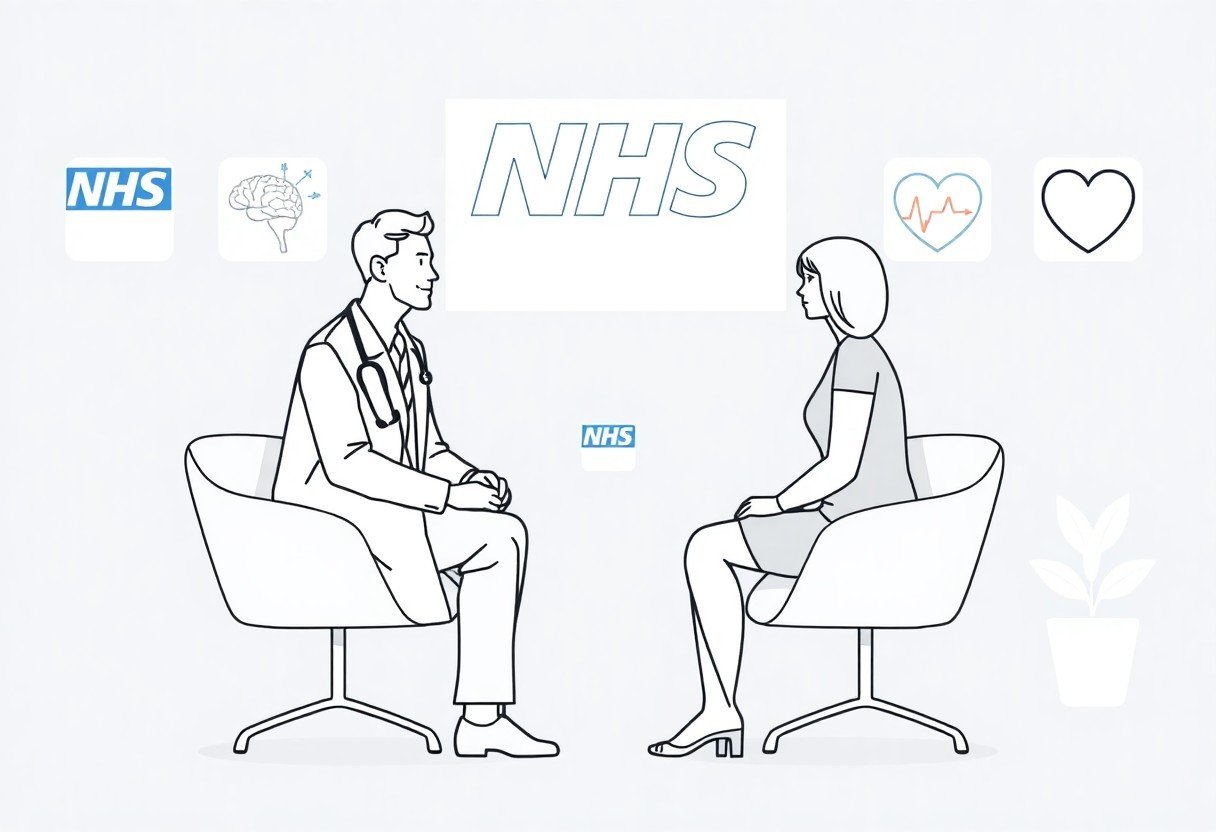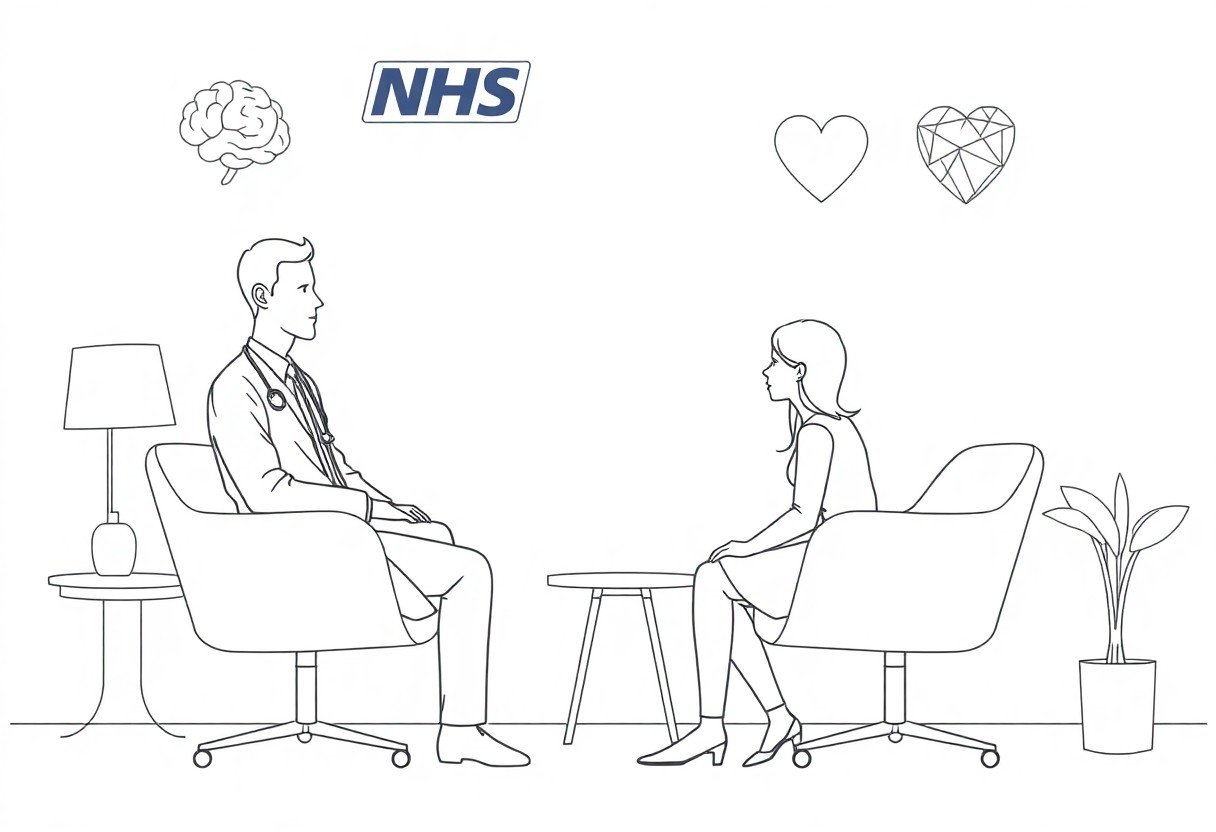How to Access NHS Mental Health Services
NHS mental health services are designed to support you in times of emotional distress or mental health challenges. When you access these services, you can talk to professionals who can provide diagnosis, therapy, and medication tailored to your needs. To get started, you typically need to consult your GP, who can refer you to the appropriate services. Alternatively, you can reach out directly to local mental health teams, ensuring you receive timely help. This guide on How to Access NHS Mental Health Services will walk you through the steps to access the care you deserve.
Key Takeaways:
- Identify your needs: Determine whether you require support for mental health issues that can be addressed through talking therapies, medication, or crisis intervention.
- Access routes: Contact your local NHS service through your GP, or refer to NHS 111 for urgent mental health assistance, or visit the NHS website for information on available services.
- Know your rights: Be aware that you have the right to receive timely support, and you can seek a second opinion if you’re not satisfied with your treatment or service received.
Understanding NHS Mental Health Services
For many individuals, the NHS offers a vital resource for mental health support. Understanding the available services is necessary in navigating your options and ensuring you receive the right type of assistance tailored to your needs. The NHS provides various mental health services designed to support individuals facing emotional challenges, psychological disorders, or crises, empowering you to seek help and prioritize your mental well-being.
Types of Services Available
- Community Mental Health Teams: Support for those with ongoing mental health conditions.
- Crisis Services: Immediate assistance for those in mental health emergencies.
- Therapy Services: Counseling and therapeutic intervention options.
- Inpatient Services: Hospitalization for severe mental health issues.
- Self-Help Resources: Information and tools for managing mental health independently.
The variety of services ensures that there is support available for everyone, from mild concerns to severe crises.
Eligibility Criteria
One important factor to consider when accessing NHS mental health services is the eligibility criteria. These criteria often depend on your age, the nature of your mental health needs, and whether you are registered with a GP within the NHS. Services may vary, so understanding if you meet these conditions is vital to getting the appropriate help.
Services provided by the NHS typically require you to be a resident of the UK and registered with a local GP. Depending on your specific situation, there may be additional requirements or assessments to determine the most suitable treatment options. If you are under 18, you may be directed to specialized youth services. Always consult with your GP or local NHS service to clarify your eligibility and ensure you access the care you need.
How to Access Services
If you’re seeking mental health support from the NHS, accessing services can feel overwhelming. Start by identifying your needs and exploring the options available to you. Various pathways exist, including self-referrals and seeking a referral from your GP, ensuring that you find the right support system tailored to your situation.
Self-Referral Process
To access mental health services directly, you can utilize the self-referral process where applicable. This allows you to approach certain services, such as talking therapies, without needing a GP referral. You simply fill out a form detailing your needs, which can often be done online or over the phone.
Getting a Referral from Your GP
On the other hand, obtaining a referral from your GP can also be an effective way to access mental health services. Your GP will assess your situation and discuss appropriate treatment options, guiding you toward the right specialist or service to meet your needs.
This process allows for a more personalized approach, as your GP has a full understanding of your medical history and can refer you to suitable services. It’s important to express your specific concerns clearly during your appointment, and don’t hesitate to ask about any treatment options or waiting times you should expect. A good referral can significantly streamline your access to effective mental health care, ensuring that you receive the support you need in a timely manner.
Tips for Effective Communication
All communication with healthcare professionals should be clear and direct. To ensure you convey your message effectively, consider these tips:
- Be honest about your feelings and experiences.
- Use specific examples to illustrate your situation.
- Take notes before your appointment to stay organized.
- Ask questions if you don’t understand something.
- Practice active listening to fully engage in the conversation.
After implementing these strategies, you’re more likely to have productive discussions regarding your mental health.
Preparing for Your Appointment
One of the most effective strategies for your appointment is to bring a list of symptoms, concerns, and questions. This preparation helps you stay focused and ensures you cover everything that’s important to you.
Discussing Your Needs and Concerns
Preparing to discuss your needs may feel overwhelming, but it presents an opportunity for impactful dialogue. Make a list of specific issues you’re facing, as well as any thoughts or feelings that you believe are relevant. This proactive approach will help the healthcare professional understand your situation better and tailor their recommendations to your unique circumstances.
Understanding your needs is vital for receiving appropriate care. Be candid about any symptoms you’re experiencing, whether they are physical, emotional, or psychological. Highlight any negative impacts these issues are having on your daily life. Conversely, share any positive changes or progress you’ve noticed to provide a balanced view of your situation. This comprehensive discussion will enable your healthcare professional to offer you the best support possible.
Factors Affecting Access
Now, it’s important to consider various factors that can impact your access to NHS mental health services. These include:
- Geographical location
- Socioeconomic status
- Awareness of services
- Stigma
- Language barriers
The combination of these factors may influence the accessibility and effectiveness of your treatment.
Waiting Times and Availability
Affecting your ability to receive timely support, waiting times for NHS mental health services can vary significantly based on location and demand. Longer wait times may leave you feeling unsupported and anxious, ultimately impacting your mental health.
Impact of Local NHS Policies
If you are seeking mental health support, local NHS policies can play a significant role in your access to services. These policies may dictate availability, funding, and the types of services offered, meaning your experience can vary greatly depending on where you live.
Access to mental health services is often dictated by local commissioning and funding decisions. Certain areas may experience underfunding, leading to a lack of resources and limited service options. Alternatively, some regions may prioritize mental health, resulting in better availability and faster access for residents. Being aware of your local NHS policies is vital, as it can help you navigate the mental health landscape in your area more effectively.

Navigating Support Options
Keep in mind that accessing NHS mental health services involves understanding the various support options available to you. From helplines to community services, knowing where to turn can make a difference in your mental well-being. Take some time to explore these options so you can find the best fit for your needs.
Mental Health Helplines
With a variety of mental health helplines available, you can reach out for immediate support whenever you need it. These services offer confidential assistance and guidance, making them a valuable resource for anyone struggling with mental health issues.
Community Support Services
Helplines are just one piece of the puzzle; community support services provide an array of options tailored to your needs. These services include support groups, outreach programs, and counseling, designed to help you connect with others and receive guidance on your mental health journey. Community support is often delivered by local organizations that understand the unique challenges you may face and strive to foster a sense of belonging. Engaging with these services can help you build a support network that contributes positively to your recovery and overall well-being.
Frequently Asked Questions
To help you navigate NHS mental health services effectively, we’ve compiled answers to some common questions. Whether you are looking for eligibility criteria, how to make a referral, or what to expect during your first visit, we aim to provide clarity and support. Understanding these aspects can demystify the process and empower you to seek the help you need.
Common Queries
One of the most frequently asked questions relates to the types of mental health issues the NHS can help with. From anxiety and depression to more severe conditions, the NHS provides a range of services to address various mental health needs. You may also wonder how long you might have to wait for an appointment, which can vary depending on your location and the services available.
Resources for Further Information
There’s a wealth of resources available to you for further information about accessing NHS mental health services. Government websites, local NHS trust pages, and mental health organizations often provide detailed guidance. Additionally, you can access support hotlines which can offer immediate assistance and advice.
Another valuable resource is Mind, a leading mental health charity that offers a variety of information on navigating NHS services and understanding your rights. Additionally, the official NHS website allows you to find local mental health services in your area, along with self-help tools and informative articles on specific conditions. Utilizing these resources not only enhances your understanding but also equips you with the knowledge to better advocate for your own mental health.
Summing up
With this in mind, accessing NHS mental health services involves understanding your needs and utilizing available resources. Start by consulting your GP, who can assess your situation and refer you to appropriate services. You can also find support through helplines, online resources, and community mental health teams. Be proactive in seeking help, as early intervention can lead to better outcomes for your mental well-being. Ensure you explore all avenues, including local services, to find the support that best suits your needs.
FAQ
Q: How do I know if I need to access NHS mental health services?
A: If you are experiencing persistent feelings of sadness, anxiety, stress, or any other mental health concerns that affect your daily life, it may be beneficial to seek help. Signs that you might need support include changes in sleep patterns, difficulty concentrating, withdrawal from social activities, or increasing feelings of hopelessness. It’s always a good idea to talk to a healthcare professional who can provide advice tailored to your situation.
Q: What are the steps to access NHS mental health services?
A: To access NHS mental health services, you can start by visiting your general practitioner (GP) for an evaluation. Your GP can discuss your symptoms and recommend a plan for treatment, which may include referrals to therapists or specialists. In some regions, you may also access services through self-referral directly to mental health teams or by contacting local mental health services. Be sure to check your local NHS website for specific guidance and available resources in your area.
Q: Are there any immediate support options available through NHS mental health services?
A: Yes, for those in immediate distress or crisis, the NHS provides urgent mental health support. You can contact the Samaritans at 116 123 for 24/7 confidential assistance. Additionally, many NHS Trusts offer dedicated crisis teams that you can reach out to. If you are ever in immediate danger or are experiencing a medical emergency, it is important to call 999 or go to your nearest accident and emergency department.
Access to Support and Services







